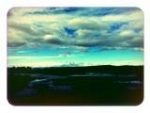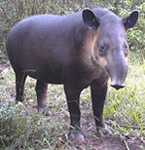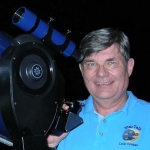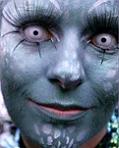Distilled vs. Purified Water
- brasshopper
- Posts: 169
- Joined: Thu Apr 27, 2006 9:26 pm
- Contact:
Shoot them?
These days, they shoot them with high output radiation. Gamma, to be precise. They can do the same to wrapped food and it will last a very long time at room temperature - and it does not become radioactive.
If you want sterile water to clean a operation field, you might zap it with a big dose of gamma. It might not have a single living spore or anything else that could possibly cause it to contaminate a cut - and it might be completely unsuitable for the application - wrong for a humidifier.
For gamma sterilization, they stack everything carefully, and bring out a source, like cobalt 60, perhaps normally buried deep underground, via remote control. They leave the source near the stuff that they want to sterlize for a "while".
Many thinga that can't be sterilized with ethylene Oxide or steam are wrapped and handled with gamma. Gamma sterilizes things inside their paper wrappings without affecting the paper. I recall that people used to use nitrogen and now they are using vacuum and peroxide vapor and other such. But the point here (which I think that others are trying to make as well) is that we want distilled so that there is little or no mineral residue in the humidification chamber - and what we want is deminerialized water, pure water, distilled water, something without sodium, calcium, or other salts that will muck up the works. It matters less that the water is bacterlogically clean. In fact, it might matter very little, since, as pointed out, there is little chance that the bacteria in water can somehow make it to the breathing person on the vapor - you need some sort of atomization to make the bacteria move into air and then down the hose.
Having used a humidifier, I don't see the atomization.
If you want sterile water to clean a operation field, you might zap it with a big dose of gamma. It might not have a single living spore or anything else that could possibly cause it to contaminate a cut - and it might be completely unsuitable for the application - wrong for a humidifier.
For gamma sterilization, they stack everything carefully, and bring out a source, like cobalt 60, perhaps normally buried deep underground, via remote control. They leave the source near the stuff that they want to sterlize for a "while".
Many thinga that can't be sterilized with ethylene Oxide or steam are wrapped and handled with gamma. Gamma sterilizes things inside their paper wrappings without affecting the paper. I recall that people used to use nitrogen and now they are using vacuum and peroxide vapor and other such. But the point here (which I think that others are trying to make as well) is that we want distilled so that there is little or no mineral residue in the humidification chamber - and what we want is deminerialized water, pure water, distilled water, something without sodium, calcium, or other salts that will muck up the works. It matters less that the water is bacterlogically clean. In fact, it might matter very little, since, as pointed out, there is little chance that the bacteria in water can somehow make it to the breathing person on the vapor - you need some sort of atomization to make the bacteria move into air and then down the hose.
Having used a humidifier, I don't see the atomization.
Re: Shoot them?
[quote="brasshopper"]These days, they shoot them with high output radiation. Gamma, to be precise. They can do the same to wrapped food and it will last a very long time at room temperature - and it does not become radioactive.
If you want sterile water to clean a operation field, you might zap it with a big dose of gamma. It might not have a single living spore or anything else that could possibly cause it to contaminate a cut - and it might be completely unsuitable for the application - wrong for a humidifier.
For gamma sterilization, they stack everything carefully, and bring out a source, like cobalt 60, perhaps normally buried deep underground, via remote control. They leave the source near the stuff that they want to sterlize for a "while".
Many thinga that can't be sterilized with ethylene Oxide or steam are wrapped and handled with gamma. Gamma sterilizes things inside their paper wrappings without affecting the paper. I recall that people used to use nitrogen and now they are using vacuum and peroxide vapor and other such. But the point here (which I think that others are trying to make as well) is that we want distilled so that there is little or no mineral residue in the humidification chamber - and what we want is deminerialized water, pure water, distilled water, something without sodium, calcium, or other salts that will muck up the works. It matters less that the water is bacterlogically clean. In fact, it might matter very little, since, as pointed out, there is little chance that the bacteria in water can somehow make it to the breathing person on the vapor - you need some sort of atomization to make the bacteria move into air and then down the hose.
Having used a humidifier, I don't see the atomization.
If you want sterile water to clean a operation field, you might zap it with a big dose of gamma. It might not have a single living spore or anything else that could possibly cause it to contaminate a cut - and it might be completely unsuitable for the application - wrong for a humidifier.
For gamma sterilization, they stack everything carefully, and bring out a source, like cobalt 60, perhaps normally buried deep underground, via remote control. They leave the source near the stuff that they want to sterlize for a "while".
Many thinga that can't be sterilized with ethylene Oxide or steam are wrapped and handled with gamma. Gamma sterilizes things inside their paper wrappings without affecting the paper. I recall that people used to use nitrogen and now they are using vacuum and peroxide vapor and other such. But the point here (which I think that others are trying to make as well) is that we want distilled so that there is little or no mineral residue in the humidification chamber - and what we want is deminerialized water, pure water, distilled water, something without sodium, calcium, or other salts that will muck up the works. It matters less that the water is bacterlogically clean. In fact, it might matter very little, since, as pointed out, there is little chance that the bacteria in water can somehow make it to the breathing person on the vapor - you need some sort of atomization to make the bacteria move into air and then down the hose.
Having used a humidifier, I don't see the atomization.
Use data to optimize your xPAP treatment!
"The art of medicine consists in amusing the patient while nature cures the disease." Voltaire
"The art of medicine consists in amusing the patient while nature cures the disease." Voltaire
Re:
Just wanna say thank you for the information that you have been shared to us.Bingo wrote:Taken from a Google search "difference between purified water and distilled water"
So yeah, purified water is as much a marketing term as it is a descriptor.Distilled water is water that has been recondensed from steam. Water is heated to boiling and the water vapor (steam) is collected and condensed back into a pure liquid. Any impurities like minerals, stay as a residue in the original liquid, separate from the distilled water. Distilled is probably considered the most pure.
Bottled water is tougher because it takes many forms: spring, purified, and mineral are the most common but there is also sparkling, artesian, etc. Spring water, like Evian, comes from groundwater that rises to the surface naturally. The composition of this water is not allowed to be changed before it is bottled. Mineral water is water naturally containing not less than 250 parts per million total dissolved solids. Note: a lot of people think Dasani is mineral water but it isn't. Dasani is purified water that has had minerals added back. Purified water is basically tap water that has gone through additional treatment processes like filtration, reverse osmosis and/or ozonation to remove more impurities and make the water taste better. It is almost always more pure than your tap water.
ALWAYS go with distilled water just to be sure. It's not AS big a deal with CPAP as it is with, say, oxygen where you have smaller inlets and outlets, but it is still important.
Bingo
Keep on doing a research and post it, ok?
It will surely lead to to become a successful one...
_________________
Everpure Filters
Re: Distilled vs. Purified Water
I have a Zero water filter system for my water cooler and can tell no difference in the buildup I see from distilled water or the Zero Water filter. I still get minor haze from both so I use the Zero water filtered water.
The smell is much better than the distilled in the plastic bottle.
Markchi
The smell is much better than the distilled in the plastic bottle.
Markchi
Re: Distilled vs. Purified Water
I would try another brand. Distilled water should leave NO haze, NO film, or Nothing else IF it is pure (distilled) water, period.Markchi wrote:I have a Zero water filter system for my water cooler and can tell no difference in the buildup I see from distilled water or the Zero Water filter. I still get minor haze from both so I use the Zero water filtered water.
The smell is much better than the distilled in the plastic bottle.
Markchi
_________________
| Humidifier: HC150 Heated Humidifier With Hose, 2 Chambers and Stand |
| Additional Comments: New users can't remember they can't remember YET! |
BeganCPAP31Jan2007;AHI<0.5
I have no doubt, how I sleep affects every waking moment.
I am making progress-NOW I remember that I can't remember

If this isn’t rocket science why are there so many spaceshots?
Be your own healthcare advocate!
I have no doubt, how I sleep affects every waking moment.
I am making progress-NOW I remember that I can't remember
If this isn’t rocket science why are there so many spaceshots?
Be your own healthcare advocate!
Re: Distilled vs. Purified Water
+1
I have been getting my distilled water from Walmart. (< $1.00) No haze or foul odors to report.
I have been getting my distilled water from Walmart. (< $1.00) No haze or foul odors to report.
-
SaltLakeJan
- Posts: 776
- Joined: Sat Jan 17, 2009 8:49 pm
- Location: Salt Lake City, Utah
Re: Distilled vs. Purified Water
Distilled vs. Purified Water vs Tap Water
I have read several posts where tap water is used in the CPAP humidifier. After my doctor said to use distilled water only, I recalled reading those posts and decided to discover what was in our tap water before I put it in my humidifier. Anything that is forceably (CPAP Positive Pressure) put into my nares, should be investigated.
I checked with our local water department. They said everything was on their website. I almost wish I hadn't checked their site. There were pages of chemicals, forms of cholorine, disinfectants, etc. that have been injected into our drinking water.
Needless to say, I use distilled in my CPAP humidifier and in my Grossan Nasal Irrigator.
Jan
I have read several posts where tap water is used in the CPAP humidifier. After my doctor said to use distilled water only, I recalled reading those posts and decided to discover what was in our tap water before I put it in my humidifier. Anything that is forceably (CPAP Positive Pressure) put into my nares, should be investigated.
I checked with our local water department. They said everything was on their website. I almost wish I hadn't checked their site. There were pages of chemicals, forms of cholorine, disinfectants, etc. that have been injected into our drinking water.
Needless to say, I use distilled in my CPAP humidifier and in my Grossan Nasal Irrigator.
Jan
_________________
| Mask: Mirage Quattro™ Full Face CPAP Mask with Headgear |
| Additional Comments: Began CPAP 1-16-2009, Pressure=10 cm, Mask, CMS 50Plus Oximeter |
Re: Distilled vs. Purified Water
On a trip to New Zealand and Australia last year it was really confusing. We asked for 'distilled' water every where. We found out distilled was called "Pure"
"If it weren't for electricity we'd all be watching television by candlelight. "
.............Kate Hepburn
.............Kate Hepburn
Re: Distilled vs. Purified Water
Simple test - if you can drink the tap water then it should be fine in the humidifier. Just empty it out and flush daily. That way there will be no build up of the bad stuff.
If you can't drink the tap water, then make an alternative arrangement.
Remember that distilled water is only "pure" until it gets contaminated. So when you expose it to the air, the inside of a bottle, your humidifier tank, or heaven forbid, a banana, it will no longer be pure.
The tap water in Melbourne is drinkable; I've been using it in my humidifier for 8 months. The tank is as clean as when it was born. It doesn't smell, have stains, smears or scum.
K
If you can't drink the tap water, then make an alternative arrangement.
Remember that distilled water is only "pure" until it gets contaminated. So when you expose it to the air, the inside of a bottle, your humidifier tank, or heaven forbid, a banana, it will no longer be pure.
The tap water in Melbourne is drinkable; I've been using it in my humidifier for 8 months. The tank is as clean as when it was born. It doesn't smell, have stains, smears or scum.
K
Re: Distilled vs. Purified Water
There seems to be a misconception by some that certain types of water are healthier than others when used in CPAP humidifiers. Bullfunky!
The ONLY reason for distilled water is to keep the dissolved solids from building up in the humidifier reservoir. Once the water vaporizes into the air you are breathing, it's pure H2O. All the solids/contaminants are left behind. As long as you clean your equipment regularly, there is NO health reason to choose any type of water over another.
From an equipment standpoint, if you have a working water softener, tap water is fine. Any residual solids the softener misses will be flushed out by regular cleaning of the water tank.
If your tap water doesn't smell but the air coming out of the CPAP does, you've got a hygiene problem, not a water problem. And even using Evian isn't gonna fix it.
It ain't rocket science...
The ONLY reason for distilled water is to keep the dissolved solids from building up in the humidifier reservoir. Once the water vaporizes into the air you are breathing, it's pure H2O. All the solids/contaminants are left behind. As long as you clean your equipment regularly, there is NO health reason to choose any type of water over another.
From an equipment standpoint, if you have a working water softener, tap water is fine. Any residual solids the softener misses will be flushed out by regular cleaning of the water tank.
If your tap water doesn't smell but the air coming out of the CPAP does, you've got a hygiene problem, not a water problem. And even using Evian isn't gonna fix it.
It ain't rocket science...
The OSA patient died quietly in his sleep.
Unlike his passengers who died screaming as the car went over the cliff...
Unlike his passengers who died screaming as the car went over the cliff...
Re: Distilled vs. Purified Water
Same here.sam1234 wrote:+1
I have been getting my distilled water from Walmart. (< $1.00) No haze or foul odors to report.
I just looked up the company that bottles the distilled water sold at the local Wal-Mart stores. (their name is also on the label)
http://www.thefreelibrary.com/Deep+Rock ... 0136659723
http://www.bizjournals.com/gen/company. ... ket=denver
Den
(5) REMstar Autos w/C-Flex & (6) REMstar Pro 2 CPAPs w/C-Flex - Pressure Setting = 14 cm.
"Passover" Humidification - ResMed Ultra Mirage FF - Encore Pro w/Card Reader & MyEncore software - Chiroflow pillow
User since 05/14/05
"Passover" Humidification - ResMed Ultra Mirage FF - Encore Pro w/Card Reader & MyEncore software - Chiroflow pillow
User since 05/14/05
Re: Distilled vs. Purified Water
Here hereThere seems to be a misconception by some that certain types of water are healthier than others when used in CPAP humidifiers. Bullfunky!
- billbolton
- Posts: 2264
- Joined: Wed Jun 07, 2006 7:46 pm
- Location: Sydney, Australia
Re: Distilled vs. Purified Water
And whatever else is in the "water" that is able to become vaporised will be also be pure whatever else. Distilliation of any arbitrary water source does not gurantee that you only get "pure" H2O out ...... you will get everything that can be vaporised and distilled in the resulting condenstate.LinkC wrote:Once the water vaporizes into the air you are breathing, it's pure H2O.
It is quite important to look for "potable" distilled water, not just any water that has been through a distillation process.
Cheers,
Bill
Re: Distilled vs. Purified Water
Hi,
I have been distilling my own water for well over 20 years. I am now using my second distiller (first one lasted well over 10 year). I highly recommend one if you can afford the initial cost. It can also save a trip to the store.
A home distiller (that produces 3-4 US gallons/day) can be purchased for around $100 USD. The cost for electricity is less then $0.10 USD per US gallon distilled. I routinely use one to two US gallons per day. At this price structure I also empty and discard any residual water from my humidifier every morning and let it air dry during the day and finally refill it nightly (I am talking about "throwing away" a small fraction of a cent's worth of water a day.) My humidifier tank looks brand spanking new!
I always keep a spare couple of gallons of $1.00/gallon store brand distilled water--as I personally use distilled for multiple purposes. Besides my XPAP I use distilled water for drinking, cooking and for making my coffee and tea. My municipal water supply is clearly certified and drinkable but I prefer the distilled water's taste (read that as no taste). I have never had to "de-mineralize" any of the devices that I use the distilled. The distilled water also makes them last much longer.
Reverse Osmosis (RO) is also a good source. I would avoid any other type of water for routine use. But, any potable (drinkable) water should be able to be used in a pinch.
If you need to use non-distilled or RO water then fill the humidifier to its maximum recommended capacity and make sure to empty and rinse it daily to reduce mineral build up. Others have identified cleaning procedures for removing the build up (aka mineral scale).
I would finally recommend that you avoid using water identified as "de-ionized" as this particular process can leave the water with an acidic pH that can be corrosive on equipment--it is not something that I would drink!
I have been distilling my own water for well over 20 years. I am now using my second distiller (first one lasted well over 10 year). I highly recommend one if you can afford the initial cost. It can also save a trip to the store.
A home distiller (that produces 3-4 US gallons/day) can be purchased for around $100 USD. The cost for electricity is less then $0.10 USD per US gallon distilled. I routinely use one to two US gallons per day. At this price structure I also empty and discard any residual water from my humidifier every morning and let it air dry during the day and finally refill it nightly (I am talking about "throwing away" a small fraction of a cent's worth of water a day.) My humidifier tank looks brand spanking new!
I always keep a spare couple of gallons of $1.00/gallon store brand distilled water--as I personally use distilled for multiple purposes. Besides my XPAP I use distilled water for drinking, cooking and for making my coffee and tea. My municipal water supply is clearly certified and drinkable but I prefer the distilled water's taste (read that as no taste). I have never had to "de-mineralize" any of the devices that I use the distilled. The distilled water also makes them last much longer.
Reverse Osmosis (RO) is also a good source. I would avoid any other type of water for routine use. But, any potable (drinkable) water should be able to be used in a pinch.
If you need to use non-distilled or RO water then fill the humidifier to its maximum recommended capacity and make sure to empty and rinse it daily to reduce mineral build up. Others have identified cleaning procedures for removing the build up (aka mineral scale).
I would finally recommend that you avoid using water identified as "de-ionized" as this particular process can leave the water with an acidic pH that can be corrosive on equipment--it is not something that I would drink!
_________________
| Mask: Quattro™ FX Full Face CPAP Mask with Headgear |
| Additional Comments: Encore Pro, Backup-M Series BiPAP Auto. Set as ABiPAP 15I/9E AHI 0.2. Normally operates @ 12I/9E 1987 OSA diagnosis |
If your never go off on a tangent, you are doomed to live your life going around in circles.






















